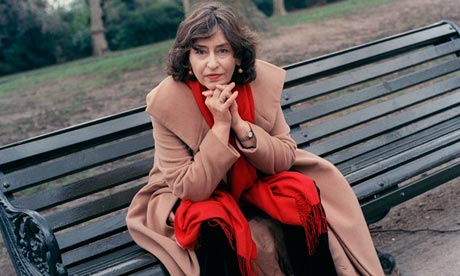
The success of harrowing true stories of abuse and poverty led to a special label for books such as Dave Pelzer's A Child Called It or Frank McCourt's Angela's Ashes. But while we can disagree about the literary merits of such "misery memoirs", neither was accused of being a slur on Irish or American nationhood or the Catholic faith. When it comes to women and women who happen to be Muslim, though, there seems to be a different attitude.
The emerging genre of memoirs about the suffering of women in Islamic states or cultures – which, in western publishing terms, may be described as "misery memoirs" – have been variously criticised for reinforcing "Orientalism"; that is to say, they support the west's archaic and patronising attitude towards Middle Eastern, Asian and North African societies, rather than actually saying something important about the women in these societies themselves. But perhaps they are doing more than providing a prurient reading, as such a western label might suggest?
Ayaan Hirsi Ali's 2006 brave memoir Infidel had important insights, from her work as a translator for Dutch social services in Leiden, into how politically correct attitudes among the authorities were blighting the lives of Muslim refugee women experiencing domestic violence. Like the Iranian-born literature professor Azar Nafisi, author of widely acclaimed Reading Lolita In Tehran, she suffered vitriolic attacks from some writers and political activists, Muslim and non-Muslim, who claimed the books were somehow "Orientalist" artefacts, serving an American neo-Conservative political agenda in the aftermath of the Iraq war.
More recently, Weidenfeld and Nicolson struck a book deal (estimated to be worth about £2m) with the Pakistani schoolgirl Malala Yousafzai who was shot by the Taliban. Her book, I Am Malala, to be published in the autumn, will celebrate the "inspiring story of her determination not be intimidated by extremists"… I wonder how the reviews for this will pan out?
Tonight, I'm chairing a panel discussion – on Women, Freedom and the Islamic World – with author Elif Shafak, whose novel Honour focuses on a killing in a British Kurdish family; Kamin Mohammadi, whose memoir The Cypress Tree recounts her childhood exile from revolutionary Iran and upbringing in London (similar terrain to Marjane Satrapi's graphic novel Persepolis) and Iraqi dissident, Haifa Zangana, who was tortured in Saddam's prisons (and who, incidentally, wrote an extremely powerful article, about the plight of women detainees in the Iraq war, for this publication). These acclaimed authors all point towards the popularity of reading about the suffering of women in Islamic cultures but they also highlight the rich and diverse landscape of women writers coming out of the Muslim world in recent years.
Although not necessarily labelled a "misery memoir", I was surprised to find that even Zangana's book, Dreaming of Baghdad, features an astonishingly vicious point by Hamid Dabashi, professor at Columbia University and well-known critic of Reading Lolita in Tehran. He writes in a forward: "When I read Dreaming of Baghdad, I couldn't help but wonder: why is it that Iran has not produced a Haifa Zangana in exile, but instead a platoon of self-sexualising memoirists infantilizing a nation, whitewashing the harsh struggles of a people?"
This suggests to me that Muslim women – in this case Iranian women – can't write a credible memoir of suffering without it being wrapped up in the struggles of a nation, which certainly was never the case with McCourt or Peltzer. Even if we ignore such attitudes, the uncomfortable reality is that the western publishing world is fascinated by such tales of female suffering and misery.
• Samira Ahmed is chairing Women, Freedom and the Islamic World with Elif Shafak, Haifa Zangana and Kamin Mohammadi at the Asia House Festival of Asian Literature tonight. • Tickets £10. Bookings call 020-7307 5454 www.asiahouse.org/arts-and-culture

